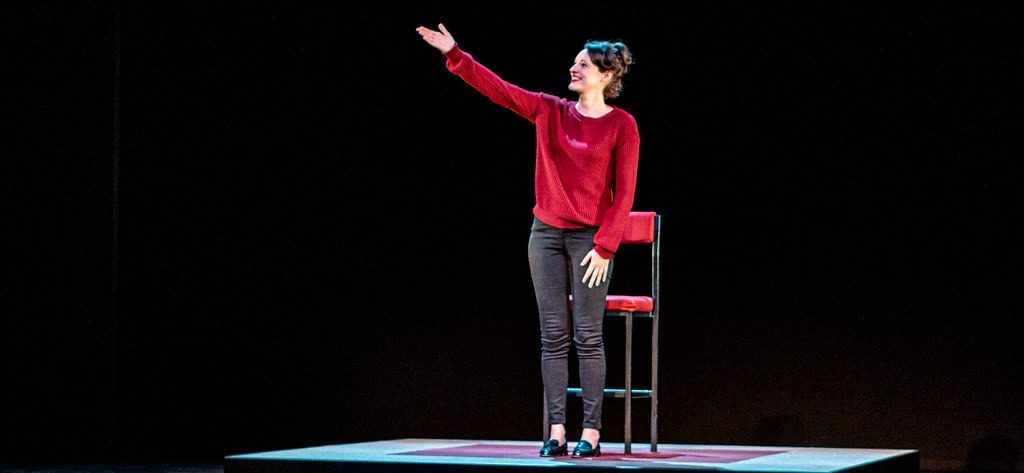Fleabag: the greatest love story of our age
Like many avid followers of the comedy-drama show Fleabag, you may be devastated by the final episode and confused as to why this is a romantic piece on the show. Rest assured – no diminishing of the greater themes of work, sex, family, and loss will be present. In fact, I’ll argue that the distinct stylistic choices and incredibly fleshed-out female narratives make this love story one of the most beautiful and nuanced of our age.
Created and written by Phoebe Waller-Bridge, Fleabag is a multi-award-winning BBC TV series (2016–2019) that consists of two seasons based on Waller-Bridge’s 2013 one-woman show Touch. The series follows our title character, Fleabag, as she navigates a period in early adulthood as an angry, emotive and sexually active young woman living in London.
Season one focuses on dysfunctional family tensions and establishes the crucial audience-centric approach. Waller-Bridge’s use of direct address in the breaking of the fourth wall fosters an intimate relationship with the audience who become both an emotional repository and a trusted confidant. In an interview with the Playwrights Canada Press, Waller-Bridge stated: “I am obsessed with audiences – how to win them, why some things alienate them. How to draw them in and surprise them, what divides them. It’s a theatrical sport for me – and I’m hooked.” This is implemented from the very first scene as we get a play-by-play of an intimate encounter with a handsome stranger, which is masterfully cut through by snarky humour and witty double-entendre.
Now, while it’s key to note that the direct address technique, known as ‘breaking the fourth wall’, is a common narrative device used in shows such as The Office (NBC, 2005–2013) and House of Cards (Netflix, 2013–2018), Fleabag complicates that straightforward relationship. She continually tells the viewers things she wants herself to believe and in doing so, she ultimately distances us from the true vulnerability she experiences in her relationship with The Priest in season two.
We are now concerned with the construction of the moral identity of our hero
As television leans towards shorter episodes with even shorter seasons, there is something nostalgically compelling and genuinely effective about breaking down broader narrative into quick episodic chunks. And when dealing with someone in a period of serious emotional tumult, it’s a joy to see the specific form of the show add to the romantic atmosphere cultivated with scene-partner Andrew Scott. From the opening of season two, the very first line of the dialogue establishes ‘This is a love story’. Every line and subtle facial expression continue to build on that. In a performance that is just as witty as our main character, we meet a counterpart who furthers a stable romantic connection. Through nuanced expression, gestures, and vocal deliveries, our couple guide us in the season’s intentional direction.
The importance of an introduction is proven through the debut of The Priest. Their very first interaction is doubled in impact through his abrupt interruption of Fleabag’s aside to the audience. The direct attention and care that is not given to her by her emotionally unavailable family is rectified by his simple question. It’s a beautiful use of irony as Fleabag starts a self-deprecating line of thought, only to be immediately undercut by an in-scene interjection:
“No one’s asked me a question in 45 min–”
“So what do you do?”
A moment of stillness falls over our table. It’s the simplicity of this line that really speaks to its origins in the stage. I find this lack of speech is a nod to the unspoken rules of romance.
A romance story needs not a declaration to depend on its fruition
Season two takes place after a year’s time skip and we find Fleabag, addressing us at a family dinner, in a better place than we left her. And so, we are now concerned with the construction of the moral identity of our hero. It’s in the process of parsing that arrested development that our love story is loaded with the broader thematic meanings, which is found lacking in other typified romantic stories.
Fleabag is still battling her past alongside tensions from her increasingly hostile family, and who better to deliver an emotional exorcism than ‘The Hot Priest’? What we realise is that he provides a spiritual and romantic connection that pairs the act of forgiveness with the necessity of being flawed. Which is why realistic moments concerning love, like her dad’s confession in the attic and The Priest’s officiant speech on how love is awful, culminates in a forgiveness which shouts one of Fleabag’s deeper meanings: you can be heavily flawed and that is something to work on as much as it is something to forgive yourself for.
The final lines of the series are a paramount choice of radical acceptance. She pushes the camera away from herself as The Priest utters his devastating last line, and she decides to present a raw truth: “It’ll pass.” No matter how precious that pain is or how inescapable, it’ll pass. In this moment of vulnerability, Fleabag bares her soul to the audience in the process of an authentic relationship, and she gives us a love story which reaches a conclusion better than any realised relationship. That a romance story needs not a declaration to depend on its fruition, but it can be just as, if not more meaningful, for two individuals to choose themselves to protect the people they love.

Comments